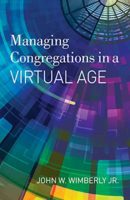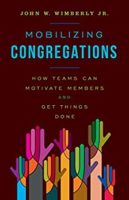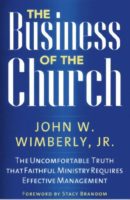
In what is surely a gross over-generalization on my part, I want to assert that the mainline denominations have, for the most part, not taken spiritual formation seriously—for decades. We take social justice seriously. We take pastoral care and worship seriously. But spiritual formation? Not so much.
However, that is changing. In my consulting practice, congregation after congregation is making spiritual formation a strategic priority. Progressive, centrist, and conservative congregations are feeling a call—a mandate even—to help their members grow spiritually, and are using intentional strategies to that end. To me, the change feels Spirit-driven.
This movement is being directed by the spiritual needs of our members. When wages don’t increase for decades for most people, when we are surrounded by scalding political rhetoric from all sides, when we see boarded-up stores in our hometown, we start to wonder what life is all about. We begin to ask the most profound yet simple questions about who we are and what we are called to do and be. The same questions drove a huge increase in worship attendance after the Great Depression and World War II. Adverse times have a way of focusing us on what is important.
Doing what we do best
In one of those delicious ironies we experience from time to time, life is forcing us as leaders of congregations to do one of the things we can do best. We are being asked to help people connect with God and their neighbor. Ancient rituals such as daily prayer, lighting candles, meditating, walking in labyrinths, chanting, and being silent to listen for God are being resurrected to fill our contemporary time with a peace the world cannot give us.
In the mainline denominations, I sense both fear of making spiritual development a priority and, simultaneously, excitement over the prospect. I hear people saying, “We don’t know how to do this but we must.” “I don’t want to be known as some kind of religious fanatic but I want more depth to my spiritual life than doing church work.” We lack confidence in our ability, as congregations, to feed our members the Bread of Life. And yet, at the same time, we instinctively know such feeding is one of the main reasons we are still alive as an institution.
A large part of this nation’s largest generation (millennials) identifies as “spiritual but not religious.” That is an opening for congregations as wide as the Grand Canyon. Can we not help this amazing generation, as well as all the others, plumb the depths of the word “spiritual” in a way that leads, ultimately, to the conclusion that religion is part of the solution, not just a problem (and a problem religion can be)? Can we not help them understand the profound connection between their personal spirituality and being-in-community with other people seeking the presence of God? More important than my opinion, congregations are answering those questions with a growing chorus of “Yes!”
Beyond the old debate
I hope that we have moved beyond the debate that plagued my generation’s time of leadership in the church. We boomers needlessly pitted personal spiritual growth against the growth of social justice. “I want to focus on social justice.” “No, I want to focus on personal spiritual growth and evangelism!” I never understood the conflict between these fundamental responsibilities of a congregation. Are those who stress the importance of social justice missing the fact that great figures such as Jane Addams (a Presbyterian and Unitarian), Dr. King, and Archbishop Tutu were motivated by a deep, personal and abiding faith in a just God? Are those who stress personal spiritual development missing the fact that a faith without works is no faith at all?
I am fascinated watching how congregations are grappling with the responsibility they are reclaiming to help people grow into spiritual maturity. I don’t know exactly how it will play out. But I do know that this has nothing to do with creating a new church program. It is a response to one of the most fundamental urges in the human heart—a desire to connect with our God. Connecting people with God—now there is a purpose for any congregation.
John Wimberly is an experienced pastor and consultant. As a consultant, he has worked with congregations and judicatories on strategic planning, staff designs for the 21st century, and congregational growth as well as financial and administrative management. He has MBA, MDiv, and PhD (theology) degrees. His books focus on effective management and leadership. John believes congregations can have a bright future!



